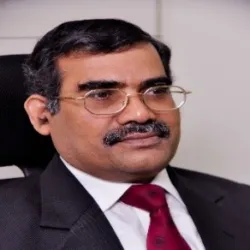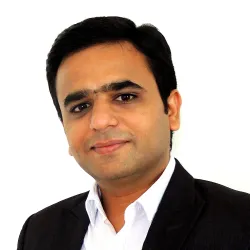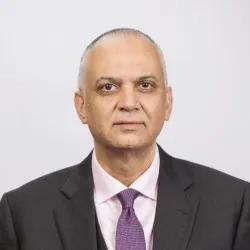Mobile Payments and Financial Inclusion: Integration, Development and Oversight
Mobile Payments and Financial Inclusion: Integration, Development and Oversight
Mobile Payments and Financial Inclusion: Integration, Development and Oversight
September 6 – 9
Chair: Stephen Mwaura, chairman, Fintech Institute & former head of national payments systems, Central Bank of Kenya
As digital innovation takes the world by storm along with the impact of a global pandemic, consumers are calling for faster and more efficient payments.
In 2021, mobile payments services have been expanding and are increasing their stake in the payments industry. Every day, mobile payments are continuing to rapidly grow and improve the convenience to their customers.
However, as central banks are responsible for overseeing the payment system, they are increasingly aware of the need to find the right balance between encouraging innovation and consumer protection and the pressure has never been greater led by Covid-19 developments.
This course, ‘Mobile Payments and Financial Inclusion: Integration, Development and Oversight’ is designed to equip central bankers with the tools they need to tackle these issues.
Each day will feature three hours of expert-led live content to maximise the opportunity to share and learn. The course chair will ensure participants have opportunities to network throughout the programme.
Timings: 8am-12pm (ET) | 1pm-5pm (BST) | 8pm-12am (SGT)
Course agenda
Two weeks prior to your training course you will be emailed access to our content hub with course materials, including a trial to Central Banking if you are not already subscribed. There will be a combination of articles, reports and presentations that will contribute to two hours of preparation time for the live content. Presentations for the sessions will also be held here subject to the speaker approval.
Evolving Landscape of Mobile Payments
13:00 – 13:15
Course introduction
Course introduction session led by the chair
13:00 - 13:15
- Introductions and welcome from the chairperson
- Overview of the training course
- Discussion of the delegate expectations
Stephen Mwaura
Chairman, Fintech Institute & former head of national payments systems
Former Central Bank of Kenya
Stephen is an international consultant with broad expertise for over 25 years in digital financial services, payment systems, central banking practices and legal and regulatory frameworks. Prior to working as an International consultant, Stephen was in charge of the National Payments System division at the Central Bank of Kenya, where he championed financial inclusion initiatives in Kenya- key among them was the globally recognised M-Pesa platform run by Safaricom which currently has 27 million subscribers, equivalent to a penetration rate of 75% in mobile money sector.
Stephen has considerable experience working with a wide range of stakeholders in the digital financial world (Telecommunication firms, Banks, donor organisations, Treasury, other regulators). At a regional level, he has extended his leadership expertise in the harmonisation of various initiatives at an East Africa Community (EAC) level. At an international level, he is a regular contributor and an acclaimed global speaker at both International Telecommunications Union (ITU) and Alliance for Financial Inclusion (AFI) fora. In addition, he has excellent research capabilities and is frequently requested to carry out peer review assignments and book reviews for colleagues in the industry
13:15 – 14:15
State of the industry in 2021
13:15 - 14:15
- Assessment of mobile payments in 2021
- Emerging and persistent risks for mobile payment providers and consumers
- Strategies for effective regulation and oversight of mobile payments
- Examples of innovative digital platforms facilitating financial inclusion
14:15 – 14:30
Break
14:15 - 14:30
14:30 – 15:30
Mobile payments in a Covid-19 world
14:30 - 15:30
- The impact of the Covid-19 pandemic on mobile payments usage
- Mobile money policy responses related to the pandemic
- Risks to individual payments providers, users and the financial system
- Discussion: how has the pandemic both hindered and helped the development of the payments industry?
Stephen Mwaura
Chairman, Fintech Institute & former head of national payments systems
Former Central Bank of Kenya
Stephen is an international consultant with broad expertise for over 25 years in digital financial services, payment systems, central banking practices and legal and regulatory frameworks. Prior to working as an International consultant, Stephen was in charge of the National Payments System division at the Central Bank of Kenya, where he championed financial inclusion initiatives in Kenya- key among them was the globally recognised M-Pesa platform run by Safaricom which currently has 27 million subscribers, equivalent to a penetration rate of 75% in mobile money sector.
Stephen has considerable experience working with a wide range of stakeholders in the digital financial world (Telecommunication firms, Banks, donor organisations, Treasury, other regulators). At a regional level, he has extended his leadership expertise in the harmonisation of various initiatives at an East Africa Community (EAC) level. At an international level, he is a regular contributor and an acclaimed global speaker at both International Telecommunications Union (ITU) and Alliance for Financial Inclusion (AFI) fora. In addition, he has excellent research capabilities and is frequently requested to carry out peer review assignments and book reviews for colleagues in the industry
15:30 – 16:00
16:00 – 17:00
Mobile payments as a driver of financial inclusion
15:45 - 16:45
- Mobile payment platforms as a tool for reaching the unbanked population
- Evolution of mobile payments across various jurisdictions
- Tips for making mobile payments more attractive for the unbanked population
- Discussion: what does it take to introduce a safe and sustainable mobile payment solution?
Abhaya Prasad Hota, - former Head of Payment Systems in Reserve Bank of India is known for his valuable contribution in design and development of payment system in India. After his central banking experience for 27 years mostly in the area of payments and technology, he headed the umbrella retail payments institution named National Payments Corporation of India (NPCI) during 2009-2017 as its founding CEO. NPCI today handles 10 out of 13 types of retail payment systems in the country accounting for almost 80 percent of all inter-bank retail payment transactions. He played the key role in building the real time 24x7 retail money transfer system ( handling 110 million transactions a day), domestic card payment system (the largest in the country in terms of number of cards issued in the country) and identity based Direct Benefit Transfer system ( all government subsidies for social welfare programs passing through this DBT system).
Currently he serves as an Independent Director in the Boards of a few organisations in the area of banking and finance and speaks at various fora on design and development of national level payment system. During the year 2018-19, he was also in the World Bank Panel of Experts on Payment Systems.
Regulatory Frameworks, Risks and Strategies
13:00 – 14:00
Creating an Enabling Regulatory Framework
13:00 - 14:00
- An enabling regulatory framework as critical for financial inclusion
- What steps can regulators take to promote financial inclusion through digital financial services?
- Strategies for overcoming regulatory barriers
- Examples from different jurisdictions of enabling regulatory frameworks
Andrew is the Regulatory Director in charge of Mobile Financial Services (MFS) at Airtel Money handling all regulatory requirements of the business.
He has over 13 years experience in banking, Central Banking, Corporate Credit, Retail credit, bank resolution, banking supervision, public policy, risk management, financial inclusion, operations, payment and settlement systems, risk and compliance audits, information technology law, and Corporate Secretarial services.
He joined Airtel Money from the Central Bank of Kenya (CBK) where he was working for 7 years. Previously, he worked with Barclays Bank of Kenya (now ABSA - Kenya) as an In House Counsel for 5 years.
He holds a Law degree (LL.B) from the University of Nairobi, He is an Advocate of the High Court of Kenya. He also holds a Masters degree in Public Policy (MPP) from Strathmore Business School. He is Certified Public Accountant (CPA-K) and Certified Public Secretary (CPS-K). In addition, he is a graduate of the Oxford Fintech program and the London School of Economics - LSE regulatory practice program.
14:00 – 14:15
Break
14:00 - 14:15
14:15 – 15:15
Identifying major risks in mobile payments
14:15 - 15:15
- The key risks affecting mobile payments in 2021
- Emerging risks, their probabilities and potential impact
- Assessing best defence strategies to develop cost effective processes and controls
- How industry participants, network operators, financial institutions and vendors can work together for effective risk mitigation
Successful and motivated Leader with unparalleled expertise in Telecom and Fin-Tech domain. 22 years’ experience and over 14 years in FinTech eco-system. Keen sense to achieve corporate goals. Ability to devise long-term strategies, build teams from scratch, envisage critical Telecom and fin-tech products and bringing them to life. Played a critical role in Financial Inclusion & Financial Literacy in different markets.
15:15 – 15:30
Break
15:15 - 15:30
15:30 – 16:30
Promoting financial inclusion through financial education
15:30 - 16:30
- Role of financial education in financial inclusion strategy
- Key features of effective financial education policies
- Overview of success stories and lessons learnt
- Designing financial literacy in delegates’ home jurisdiction
Sachin has over 16 years of international experience in consulting, project management and operations in making financial services accessible to the un/underbanked people in more than 18 different countries. He has hands-on experience in Digital Financial Services (DFS), Microfinance and Financial Inclusion. He has cross-regional work experience of Asia, Africa and Oceania. He has worked with some of the largest Banks, Mobile Network Operators, technology companies, Microfinance institutions and other stakeholders such as Donors, Central banks and other Government bodies. He has strong skills in developing business strategy/models, product development, human centred design, market research, agent network design and management, agency banking, process re-engineering, business transformation and financial awareness.
He is a certified trainer and has conducted many large-scale research studies and has published several papers. He has led technical assistance projects for capacity building of financial institutions and helped them explore alternative delivery channels (e/m banking). The primary focus of his work has always been to design and develop sustainable, effective and innovative systems; products and channels to promote the delivery of a wide range of client-centric, sustainable and technology-enabled financial services. He is an Agricultural Engineering graduate with a management degree.
Mobile Payments in the Age of Technological Innovation
13:00 – 14:00
The evolution of M-pesa and mobile payments in Africa
13:00 - 14:00
- Evolution of M-pesa across various jurisdictions
- M-pesa as a tool for reaching the unbanked population
- Tips for making M-pesa more attractive for the unbanked population
- Challenges M-pesa has faced in certain jurisdictions
Isaac Kibere
Legal counsel, financial services and finance, legal and secretarial services
Safaricom Ltd.
14:00 – 14:15
Break
14:00 - 14:15
14:15 – 15:15
Mobile financial services for financial and digital inclusion: A Bangladesh case study
14:15 - 15:15
- In-depth case-study of increasing mobile financial services for increased inclusion
- New guidelines and regulatory structures in relation to mobile financial services
- Discriminatory differences in demographics of financial inclusion
- The benefits and challenges of Mobile Financial Services (MFS) providers in improving inclusion
Mr. Salahuddin Mahmud, Deputy Director of Payment Systems Department (PSD), joined Bangladesh Bank as an Assistant Director in the year of 2014. Initially he worked at Bangladesh Financial Intelligence Unit (BFIU). BFIU works with the Money Laundering and Terrorist Financing issues and Mr. Mahmud was an analyst there. In 2016 he joined the Payment Systems Department of Bangladesh Bank and has worked with Mobile Financial Services related analysis and policy issues since then. At present, he with other colleagues of PSD, is working to strike the right balance between innovation and regulation by formulating various DFS policy ensuring the interest of all stakeholders and providing support to new FinTech ideas at the Regulatory FinTech Facilitation Office (RFFO) of PSD.
Mr. Mahmud holds a Masters Degree in Physics from the University of Dhaka as well as a Master’s in Business Administration (MBA) from the Institute of Business Administration.
15:15 – 15:30
Break
15:15 - 15:30
15:30 – 16:30
UPI- case of mobile payment system in India
15:30 - 16:30
- Session points to be confirmed
Abhaya Prasad Hota, - former Head of Payment Systems in Reserve Bank of India is known for his valuable contribution in design and development of payment system in India. After his central banking experience for 27 years mostly in the area of payments and technology, he headed the umbrella retail payments institution named National Payments Corporation of India (NPCI) during 2009-2017 as its founding CEO. NPCI today handles 10 out of 13 types of retail payment systems in the country accounting for almost 80 percent of all inter-bank retail payment transactions. He played the key role in building the real time 24x7 retail money transfer system ( handling 110 million transactions a day), domestic card payment system (the largest in the country in terms of number of cards issued in the country) and identity based Direct Benefit Transfer system ( all government subsidies for social welfare programs passing through this DBT system).
Currently he serves as an Independent Director in the Boards of a few organisations in the area of banking and finance and speaks at various fora on design and development of national level payment system. During the year 2018-19, he was also in the World Bank Panel of Experts on Payment Systems.
Future Steps for Mobile Payments
13:00 – 14:00
Future scenarios of mobile money interoperability in Africa
13:00 - 14:00
- Key factors influencing payment interoperability in Africa
- Trends, uncertainties, shapers and jokers
- Potential scenarios which could unfold across the continent
Charles is an independent consultant in Payments and Mobile Money, primarily focussed on Digital Financial Services. He led the Tanzania domestic DFS interoperability project for IFC, he was also fulfilled various roles in enabling DFS interoperability in Uganda and Mozambique and is has been involved in various DFS interoperability initiatives across Africa. Prior to this he was General Manager for Visa in sub-Saharan Africa and was responsible for Visa’s business across 25 African markets.
He is the past independent chairman of Zoona, an independent Mobile Money provider in Africa and is currently a shareholder in various African focused technology businesses, these include Fintech’s such as Yoco, a mPos business in South Africa, Stitch, an Open Banking API business targeting Africa and Kuunda, who provide data and agent liquidity tools for MNO’s and Mobile Money agents. He holds a Bachelors of Commerce from the University of Stellenbosch, a MBA from the University of Cape Town, attended the Accelerated Development Programme at the London Business School and also holds a Post Graduate in Futures Studies at the University of Stellenbosch Business School. He is currently studying towards his MPhil in Future Studies.
14:00 – 14:15
Break
14:00 - 14:15
14:15 – 15:15
Digital financial inclusion and sustainable development
14:15 - 15:15
- Going beyond P2P - the opportunity
- Potential role of DFS in accelerating achievement of the SDGs
- Examples of innovative models
Ravi was appointed to the Board of the Central Bank of Kenya in 2016. He has strong expertise in Financial Sector Development with a particular focus on promoting Financial Inclusion. He has worked in over thirty countries worldwide and has extensive experience in providing support to treasury departments and financial sector regulators.
Since 2011 Ravi has served as an Advisor to the Financial Sector Deepening (FSD) Trusts in East Africa and to the World Bank Group. His prior experience includes twelve years with the World Bank Group as a Senior Financial Sector Specialist and eleven years in consulting with Deloitte. Ravi holds an MBA in Finance and Strategy from the University of California, Berkeley and a BA Land (Urban) Economics – First Class Honors - from the University of Nairobi.
15:15 – 15:45
15:45 – 16:15
Closing remarks and delegate action plans
Concluding session led by the chair
15:45 - 16:15
- Summary of the course
- Discussion of the observed trends and case studies
- Application of learning points in the delegates’ home organisations
- Preparation of action points
Stephen Mwaura
Chairman, Fintech Institute & former head of national payments systems
Former Central Bank of Kenya
Stephen is an international consultant with broad expertise for over 25 years in digital financial services, payment systems, central banking practices and legal and regulatory frameworks. Prior to working as an International consultant, Stephen was in charge of the National Payments System division at the Central Bank of Kenya, where he championed financial inclusion initiatives in Kenya- key among them was the globally recognised M-Pesa platform run by Safaricom which currently has 27 million subscribers, equivalent to a penetration rate of 75% in mobile money sector.
Stephen has considerable experience working with a wide range of stakeholders in the digital financial world (Telecommunication firms, Banks, donor organisations, Treasury, other regulators). At a regional level, he has extended his leadership expertise in the harmonisation of various initiatives at an East Africa Community (EAC) level. At an international level, he is a regular contributor and an acclaimed global speaker at both International Telecommunications Union (ITU) and Alliance for Financial Inclusion (AFI) fora. In addition, he has excellent research capabilities and is frequently requested to carry out peer review assignments and book reviews for colleagues in the industry
16:15 – 16:30
Feedback forum
We will send a link in this session to the feedback form and would kindly ask that you help us improve the training product by completing the survey. We would also welcome any verbal feedback in this session.
16:15 - 16:30
Date: September 23
The Implementation Workshop is a chair-led forum where attendees will have the opportunity to discuss challenges around implementing the ideas they have learnt during the Live Content. Prior to the workshop you will be emailed questions to prepare in order to gain the most from the session with peers.
13:00 – 14:00
Implementation Workshop
11:00 - 12:00
Benefits of attending the Implementation Workshop:
- Developments in the area since the live content sessions, including new resource material
- Questions arising since returning to the central bank
- Challenges of implementation: where are the roadblocks?
- Medium-term goals: what is realistic?
- Establishment of group network to keep in touch with peers and share best practices
Learning outcomes
At the conclusion of the training, participants will be able to:
- Understand the major changes revolutionising mobile payments and transactions
- Assess the key components for a supervisory framework
- Analyse primary security risks and how to identify and map them
- Tackle the challenges hindering the innovation of mobile technologies
- Gain insight into the impact of mobile payments on existing payment systems
Chair

Stephen Mwaura
Chairman, Fintech Institute & former head of national payments systems
Former Central Bank of Kenya
Stephen is an international consultant with broad expertise for over 25 years in digital financial services, payment systems, central banking practices and legal and regulatory frameworks. Prior to working as an International consultant, Stephen was in charge of the National Payments System division at the Central Bank of Kenya, where he championed financial inclusion initiatives in Kenya- key among them was the globally recognised M-Pesa platform run by Safaricom which currently has 27 million subscribers, equivalent to a penetration rate of 75% in mobile money sector.
Stephen has considerable experience working with a wide range of stakeholders in the digital financial world (Telecommunication firms, Banks, donor organisations, Treasury, other regulators). At a regional level, he has extended his leadership expertise in the harmonisation of various initiatives at an East Africa Community (EAC) level. At an international level, he is a regular contributor and an acclaimed global speaker at both International Telecommunications Union (ITU) and Alliance for Financial Inclusion (AFI) fora. In addition, he has excellent research capabilities and is frequently requested to carry out peer review assignments and book reviews for colleagues in the industry







